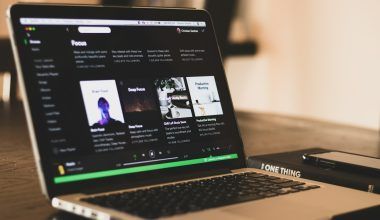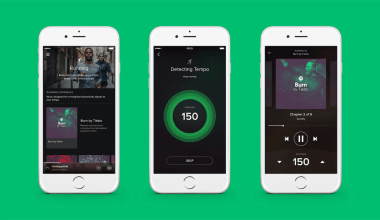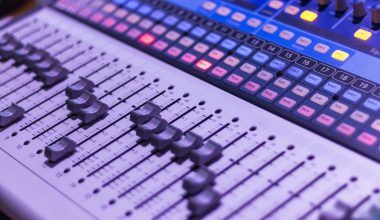Why UPC Lookup Matters for Musicians
If you’re a musician trying to share your music with the world, you’ve probably come across terms like UPC or UPC Lookup. Don’t worry—it’s not as complicated as it sounds! UPC stands for Universal Product Code, and it’s simply a way to identify your music, whether it’s an album, a single, or an EP. Think of it as a unique fingerprint for your release.
In this blog, we’ll explain everything you need to know about UPCs and how to use them for your music. From understanding what UPCs are to learning how to get one, we’ve got you covered. Plus, we’ll show you how Deliver My Tune can make this process super easy.
What is a UPC?
A UPC (Universal Product Code) is a 12-digit number that helps identify products. In the music world, a UPC is used to identify an album, single, or collection of songs. It’s like a barcode for your music.
When you distribute music on platforms like Spotify, Apple Music, or Amazon, these platforms use the UPC to keep track of your release. For example, if someone listens to your song or buys your album, the UPC ensures you get credit for it.
Why Do Musicians Need a UPC?
You might be wondering, “Why do I even need a UPC for my music?” Well, here’s why:
- To Sell Your Music Online
If you want your songs to be available on popular platforms like Spotify, Apple Music, or even YouTube Music, a UPC is a must. It’s how these platforms recognize and organize your music. - To Track Sales and Streams
A UPC helps track how many people are buying or streaming your music. This is super important for understanding your audience and getting paid properly. - For Professionalism
Having a UPC shows that you’re serious about your music. It’s a professional way to present your songs and albums to the world. - To Collect Royalties
Royalties are the money you earn every time someone streams or buys your music. A UPC ensures that all those streams and sales are linked to you.
How Do UPCs Work in Music?
Let’s break it down:
- Imagine you release an album with 10 songs. That album will have one UPC to identify it as a whole.
- Each song will have its own ISRC (International Standard Recording Code), which works like a serial number for individual tracks.
- The platforms you distribute to—like Spotify, Apple Music, or Amazon—use the UPC to track album sales and streams.
Without a UPC, platforms can’t organize your music properly. This could lead to missed streams or royalties.
How to Get a UPC for Your Music?
Here are some simple ways to get a UPC for your music:
1. Through a Distributor
Many distributors, like Deliver My Tune, provide a free UPC when you upload your music. This is the easiest and most cost-effective way to get a UPC.
2. Buy from GS1
If you want to own your UPC, you can buy one directly from GS1, the global organization that issues UPC codes. However, this can be expensive and is usually not necessary for independent artists.
3. Third-Party Services
Some companies sell UPCs at lower costs, but it’s important to check that they’re reliable.
What is UPC Lookup?
A UPC Lookup is simply searching for details about a specific UPC. It can help you find information like:
- The album or song linked to the UPC.
- The artist name.
- The release date.
- Sales and stream data.
There are online tools and databases you can use for UPC lookup. It’s helpful if you’ve lost your UPC details or want to verify that everything is accurate.
Tools for UPC Lookup
You don’t need to be a tech expert to use UPC lookup tools. Here are some easy options:
Free Tools
- Barcode Lookup Websites
Just type the UPC into a site like Barcode Lookup, and it will show you all the associated details. - Distributor Dashboards
Platforms like Deliver My Tune offer tools where you can check the UPCs assigned to your releases.
Paid Tools
- GS1 Database
This is a detailed and verified source for checking UPCs. It’s great for labels or professionals managing multiple releases. - SoundScan
This tool helps track sales data linked to your UPC, which is useful for industry professionals.
Common Issues with UPCs and How to Solve Them
UPC codes can be tricky sometimes, but most problems are easy to fix:
1. Lost UPC
- Problem: You forgot the UPC for your album or single.
- Solution: Check your distributor’s dashboard or use an online UPC lookup tool.
2. Wrong Metadata
- Problem: The UPC doesn’t match the album title or artist name.
- Solution: Update the metadata with your distributor.
3. Duplicate UPCs
- Problem: The same UPC is assigned to different releases.
- Solution: Always double-check UPC assignments, especially if you’re releasing music independently.
How UPCs Help in Royalties
Royalties are your hard-earned money, and a UPC ensures you get paid correctly. Here’s how:
- Platforms like Spotify and Apple Music use the UPC to track your streams and purchases.
- Without a UPC, they might not know who to credit for the streams.
- UPCs also help organizations like Nielsen SoundScan report accurate sales data.
Simply put, having a UPC is like having a bank account number—it ensures your earnings go to the right place.
Using Deliver My Tune for Easy UPC Management
If all this talk about UPCs feels overwhelming, don’t worry! Platforms like Deliver My Tune make the whole process simple. Here’s how they help:
- Free UPCs
When you distribute your music with Deliver My Tune, they provide UPCs at no extra cost. - Easy Lookup Tools
Their dashboard allows you to check UPC details anytime. - Global Distribution
Deliver My Tune distributes your music to over 100 platforms, making sure your UPC is recognized everywhere. - Royalty Tracking
With Deliver My Tune, you can track your royalties easily and ensure nothing is missed.
FAQs About UPC Lookup
Q1. Do I need a UPC for every song?
- No, you only need a UPC for an album or single. Individual songs are identified by ISRC codes.
Q2. Can I reuse a UPC?
- No, each UPC is unique and can only be used for one release.
Q3. What’s the cost of a UPC?
- Many distributors, like Deliver My Tune, offer UPCs for free. Buying one independently can cost between ₹1,000 and ₹3,000.
Q4. What’s the difference between UPC and ISRC?
- A UPC identifies a release (like an album), while an ISRC identifies individual tracks.
Final Thoughts
UPC lookup might sound technical, but it’s a simple and essential part of sharing your music with the world. Whether you’re an independent artist or part of a label, understanding UPCs can save you time, ensure you get paid, and make your music distribution hassle-free.
If you’re looking for an easy way to manage UPCs and distribute your music, Deliver My Tune is the perfect partner. They handle everything from providing free UPCs to tracking royalties, so you can focus on what matters most—creating amazing music.
Ready to share your music with the world? Start your journey today!
Related Articles:
For further reading, explore these related articles:
- What Does EP Mean in Music? Everything You Need to Know!
- What Does A&R Mean in Music? Everything You Need to Know!
- The Ultimate Guide to Starting and Growing A Band
For additional resources on music marketing and distribution, visit Deliver My Tune.






